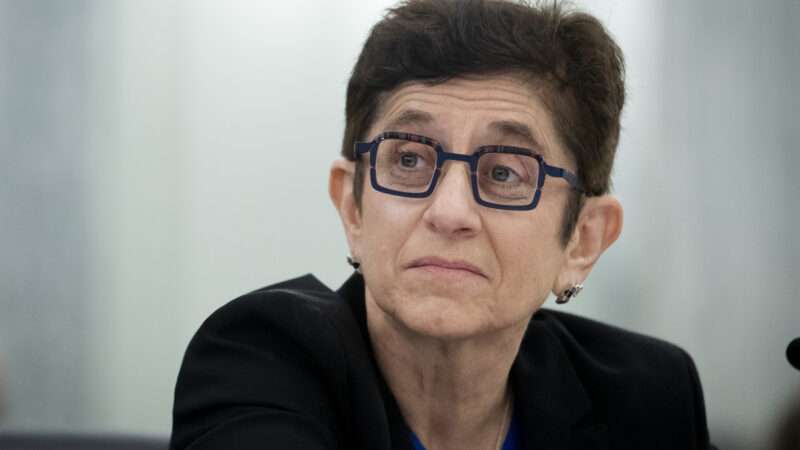
President Joe Biden has renominated Gigi Sohn to fill the Federal Communications Commission's (FCC) now-vacant fifth seat. This is the third time Sohn has been nominated. Should she gain the Senate's approval, she will break the agency's current 2–2 Democrat-Republican logjam and allow the agency to re-enact Obama-era net neutrality regulations, which are economically nonsensical and largely unnecessary.
The FCC's 2015 regulations forbade internet service providers from blocking content or discriminatorily slowing specific content and banned the practice of paid prioritization—i.e., a company paying an internet service provider (ISP) to favor its content. Left unregulated, Sohn and other proponents insist, greedy ISPs would create a two-tier internet that benefits the rich and powerful to the detriment of everyday internet users. The FCC rolled back its net neutrality regulations in 2017, and the two-tiered hellscape Sohn predicted has yet to materialize. On the contrary, today's median download speed for fixed broadband is nearly 200 megabits per second; in 2015, the average speed was just 55 Mbps.
Net neutrality advocates falsely assume that artificially inflating prices is a business's surest path to profit. "It's a zero-sum mentality that assumes private businesses will conspire against consumers to expand their market share in the absence of direct government regulation," Reason's Eric Boehm explained last year. Economics is, in fact, positive-sum, and market forces incentivize ISPs to provide quality services to the widest possible user base. "From 2010 to 2020, average data consumed by U.S. households rose 37-fold," economist Thomas W. Hazlett wrote for Reason in 2021. The rapid growth in consumer demand and consumption was enabled and catalyzed by ISPs' ever-improving offers of cheap and speedy internet.
In fact, the regulatory burdens imposed in 2015 slowed investment in broadband. "In the two years after the FCC's decision, broadband network investment dropped more than 5.6%—the first time a decline has happened outside of a recession," then–FCC Chair Ajit Pai wrote in The Wall Street Journal in 2017. According to comments submitted by the Wireless Internet Service Providers Association, a survey of the trade group's members found that the FCC's 2015 rules had "caused delay or reduction of network expansion and services, and/or allocation of significant financial resources to comply with the new rules."
It's unsurprising, however, since unadulterated net neutrality is undesirable. "Different applications have different sensitivities to congestion," Daniel Lyons of the American Enterprise Institute argued in 2017. "A small delay in packet delivery may be imperceptible to someone browsing the web but can erode the quality of a video stream or a telemedicine app. Prioritizing these packets could improve the experience for Netflix users or rural doctors, without adversely affecting users of congestion-insensitive services."
Mandated net neutrality was the worst sort of technocratic overreach. Bureaucrats dreamed up an overbroad market intervention to ameliorate an imagined crisis—to the detriment of innovation and consumers.
The post Biden Renominates Gigi Sohn, Net Neutrality Advocate, to the FCC appeared first on Reason.com.







